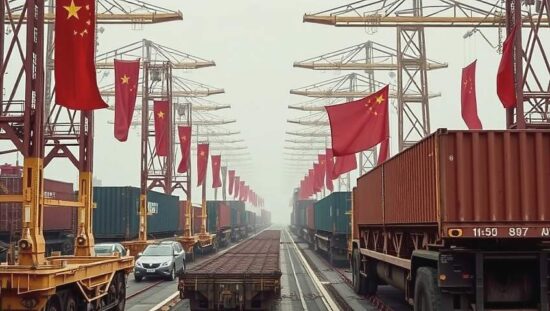The “reciprocal” tariffs imposed by President Donald Trump on dozens of countries, including massive tariffs of 104 percent on Chinese goods, came into effect on Wednesday. With this, Trump deepens his global trade war, even as he prepares for negotiations with some countries.
Trump’s tariffs have triggered recession fears and shaken the global trading order and stock markets worldwide. Since the introduction of Trump’s tariffs a week ago, the S&P 500 (SPX) has lost almost $6 trillion – the largest four-day loss since the index was introduced in the 1950s. The index is now on the brink of a bear market, defined as 20 percent below its last peak.
The sell-off at most Asian markets continued on Wednesday: while the Japanese Nikkei (N225) fell by 3 percent, the South Korean currency (Won) hit a 16-year low. Government bonds also suffered heavy losses as investors fled to the safety of cash.
Futures on European and American stocks pointed to further losses. Chinese stocks, however, held up well as state support propped up the struggling market.
Trump has given mixed signals to investors regarding the duration of the tariffs, calling them “permanent” while also boasting that they put pressure on other state and government leaders to negotiate.
Trump’s administration has scheduled talks with South Korea and Japan, two close allies and important trading partners. Italian Premier Giorgia Meloni is also set to visit next week. The vice-premier of low-wage Asian country Vietnam, which is hit by the world’s highest US tariffs, will speak with Trump’s Treasury Secretary Scott Bessent later on Wednesday.
Trump has almost doubled the tariffs on Chinese imports, which were set at 54 percent last week, in response to the retaliatory tariffs announced by Beijing last week. China has vowed to resist this extortion.
Trump has stated that the tariffs are a reaction to barriers on US goods and are necessary to address America’s trade imbalance. He has also accused countries like Japan of devaluing their currencies to gain a trade advantage, which Tokyo denies. Japan’s finance minister said on Wednesday that trade talks with Washington could also include currency rates. Trump has hinted that he may not be finished with the tariffs.





